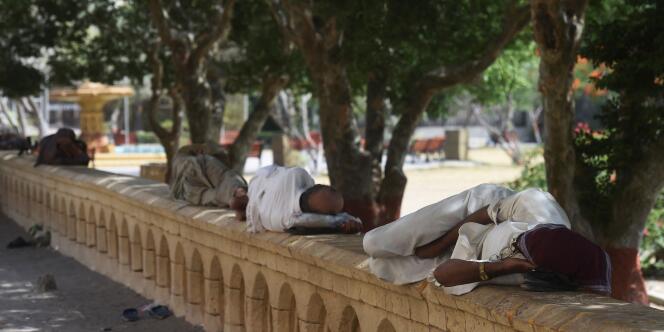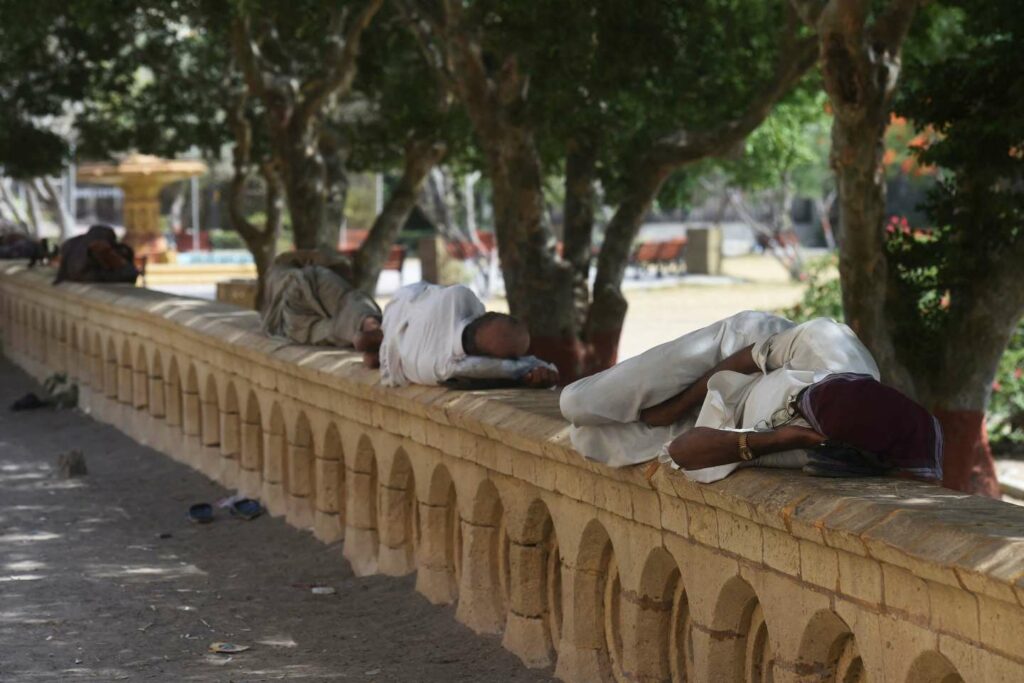
Pakistan was once again faced with abnormally high temperatures on Friday, May 13, reaching 50°C in places, as authorities warned of the risk of water shortages and the threat to health.
Large swaths of the country have been experiencing a record heat wave since late April that the United Nations World Meteorological Organization (WMO) considers « coherent » with climate change.
Temperatures soared to 50C in Jacobabad in the southern province of Sindh on Thursday, the Pakistan Meteorological Service (PMD) reported, saying it could stay that way until the end of the week.
Nationally, temperatures range between 6 and 9°C « above normal » seasonal, underlined the PMD, the thermometer displaying Friday 40 ° C in the capital, Islamabad, and the big cities of Karachi (South), Lahore (East) and Peshawar (North-West).

Also listen Climate: where should Macron start?
Indus River flow reduced by 65% this year
“This year, we went directly from winter to summer”, said PMD chief forecaster Zaheer Ahmad Babar. According to him, Pakistan has been hit since 2015 by rising temperatures, particularly in the provinces of Sindh and Punjab (Center). « The intensity, duration and frequency [de ces épisodes caniculaires] increase », he explained to Agence France-Presse. The situation is expected to worsen further in coming years in South Asia due to global warming, scientists have warned.
The flow of the Indus River has been reduced by 65% this year “due to the lack of rain and snow”, according to the spokesman of the department of irrigation in Punjab, Adnan Hassan. Taking its source in Tibet, the Indus crosses India then Pakistan before emerging in the Arabian Sea. Its basin provides 90% of Pakistan’s water supply.
The Pakistani press reported that sheep had died of sunstroke and dehydration in the Cholistan desert in Punjab, the country’s most populous province and breadbasket. “There is a real risk of shortage of food and crops this year in the country, if this lack of water were to persist”underlined Mr. Hassan.
Pakistan, which has 220 million inhabitants, says it is only responsible for 1% of global greenhouse gas emissions. However, it is in eighth position among the countries most threatened by extreme weather phenomena, according to a study by the NGO Germanwatch.
India also affected
The heat wave also hit neighboring India, with temperatures reaching 48.1°C on Thursday in the Barmer district of Rajasthan province (Northwest). They could rise to 46 ° C from Sunday in New Delhi.
Very high temperatures are also announced for the weekend in most of northwestern India, before an expected improvement with the arrival of the monsoon. On Tuesday, Pakistani Climate Change Minister Sherry Rehman called on Lahore residents to stay in the shade “during the hottest hours of the day”.

